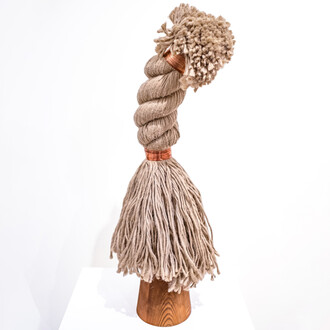Heist gallery are delighted to announce Origins, the forthcoming exhibition featuring photography of the highest international caliber. For their third show, Heist have curated the work of internationally renowned photographers who have captured the narratives of surviving tribes and customs in an increasingly globalized world. Rankin, Jimmy Nelson, Steve McCurry, Jean-Claude Moschetti, Mario Marino, Xavier Guardans, Claire Rosen are confirmed to show epic images documenting the custodians of noble and age-old traditions.
Heist’s founder, Mashael Al Rushaid explains her curation of images epitomising the purity of untouched culture, of subjects photographed in a raw and beautiful landscapes. The images have been selected as a direct contrast to the developed world, where the artists give us glimpses of places that aren’t normally accessible to us, the majority of images documenting the far edges of the earth. “We wanted to draw from the narratives of indigenous peoples on the corners of the planet, whose lives have remained unchanged for centuries. The question that has begged, in putting together the show; who got it right, them or us?”
Drawing on the grand and ambitious traditions of Irving Penn’s ‘World in a Small Room’ and Richard Avedon’s ‘American West’, Heist have selected artists with inspirational personal journeys who went to challenging lengths to capture the images. Jimmy Nelson visited 35 unique tribes in 44 countries around the world to document tribal people at their most beautiful.
Nelson’s globally celebrated study, ‘Before They Pass Away’, immortalising cultures before they vanish in our modern world has won him international acclaim. Meanwhile, Jean-Claude Moschetti has travelled through the secretive realms of West African masquerades, photographing secret spiritual societies and voodoo cults. Most of the images in the show are romanticised portraits showing tribes serene in the face of encroaching modernity. Steve McCurry - who over the course of his 30 year career - has photographed some of the most remote places on earth, is also confirmed. McCurry has left a trail of now-iconic images including one of the most recognisable photographs in popular culture, ‘The Afghan Girl’. McCurry, whose ‘Fisherman’ (Sri Lanka), ‘Flower Seller’, ‘Man Beneath The Stairs (India) will be on display has said, “The world is becoming homogenous. Once things disappear, they can be lost forever. Having a memory of how we really were is really important.”
Each photograph is a stylised portrayal of an ancient traditions photographed in a high concept way. Internationally renowned German photographer Mario Marino’s monochrome pictures from the world-forgotten Omo River Valley in Africa will feature, showing a highly endangered culture buckling under the pressures of globalisation. The work of celebrated Spanish photographer, Xavier Guardan, whose poetic visual compositions have also been selected for Origins. Meanwhile, celebrated fine art photographer Claire Rosen’s exotic will show her whimsical series of live birds will also be on display. Heist will also exhibit including a life-sized marble sculpture entitled ‘Sacrifice’ by Egyptian sculptor Khaled Zaki, who through his work, explores the connection between man and nature. Patrick Colhorn will show his blazed ceramic, ‘Triptych of Cohorts’.
In addition to the work of the two sculptors, the gallery will also display handmade artifacts from local artisans in Africa and the Middle East. In the typical Heist tradition of transforming the space to show the work at its best, plans are already afoot to work with artists from a Lagos based Museum to transform the gallery into a Yaruban inspired home (a tribe in south western Nigeria). Despite the march of modernity and the homogenous masses, Planet Earth is still a wild place.
Al Rushaid says, “The photographers took a step back from the material world to show us cultures much purer than our own. We hoped to the process of what we might have lost to modernisation and what these exotic people and creatures in faraway places might teach us.”

















